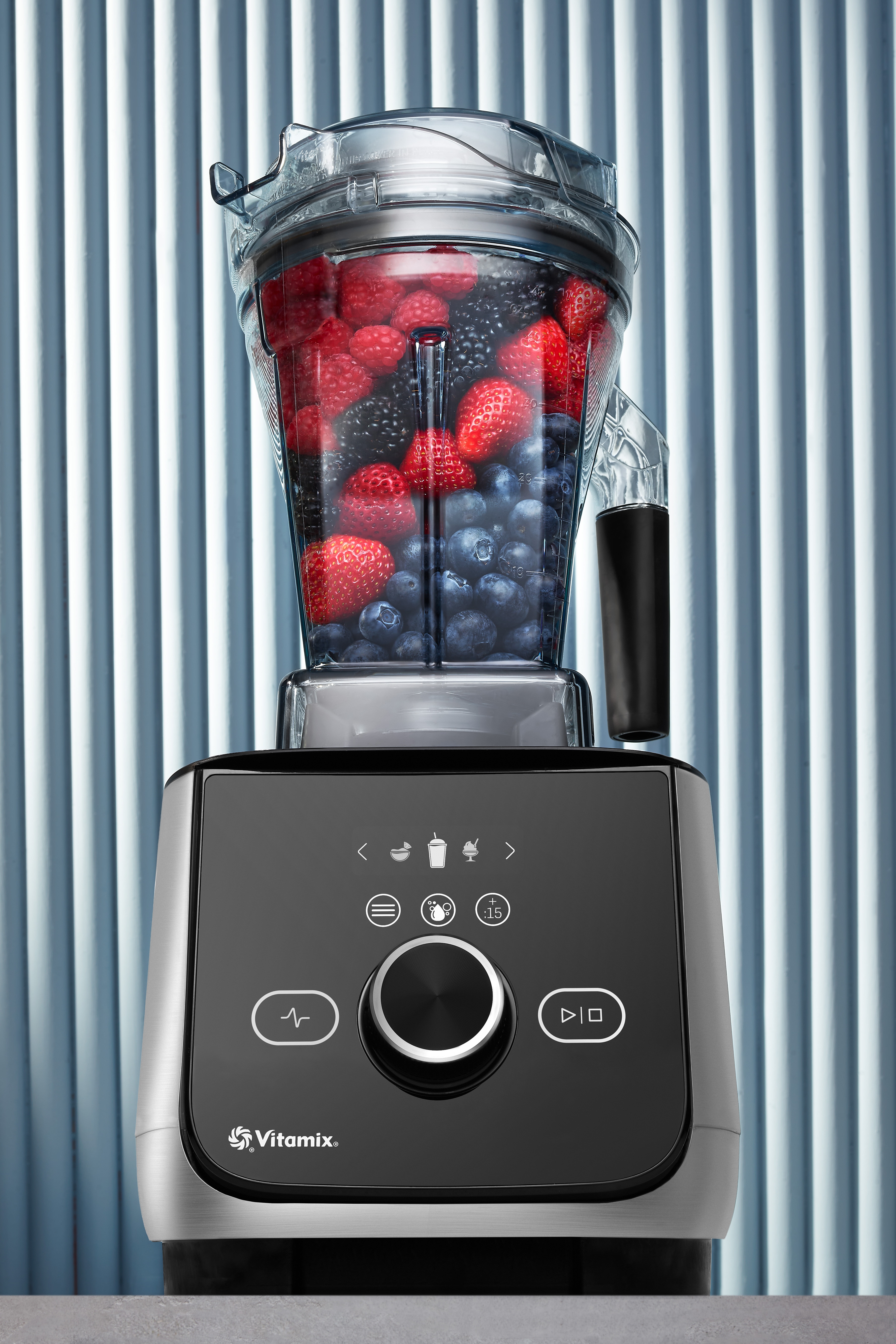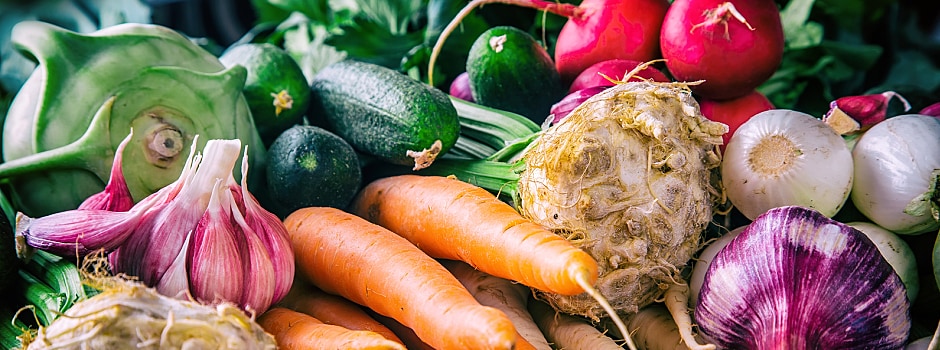The subject of vitamins in food can be a little confusing. You probably know you have to consume them but you might not know which foods are high in vitamins or how to cook foods to make sure vitamins aren't lost. So if you're a little unsure about the importance of vitamins in your diet and how to get enough vitamins in food you eat, here are a few helpful basics.
What Are Vitamins?
Vitamins are chemical substances that perform specific functions in the body. They are considered essential nutrients because humans need them to maintain optimal health, and the body generally can't produce them at all or can't produce sufficient amounts of them. The essential vitamins are B-complex vitamins (including thiamin, riboflavin, niacin, vitamin B6, folate, vitamin B12, biotin, pantothenic acid, and choline), vitamin C, vitamin A, vitamin D, vitamin E, and vitamin K. The B-complex vitamins and vitamin C are water-soluble, which means they dissolve in water and, if unused, are flushed out of the body on a daily basis (except vitamin B12). Vitamins D, E, K, and A are fat soluble—they dissolve in fat and need fat molecules to get absorbed. The fat-soluble vitamins are stored in the liver, body fat, and other tissues.
What Do Vitamins Do?
Even though only minuscule amounts of vitamins are needed, the body can't thrive without them. Vitamins are necessary for normal metabolism and healthy growth and development. They help convert proteins, carbohydrates, and fats into energy, protect and repair body tissues, and renew cells.
What Are Good Food Sources?
Having a healthy, varied diet is an important aspect of life in general. But if you're looking to increase your absorption of certain vitamins, consider digging into the following foods.
Vitamin A
Animal products like salmon, tuna, eggs, and dairy are a great place to get your vitamin A fix. Plant foods containing beta-carotene are also good sources of vitamin A because beta-carotene can be converted into vitamin A in the body. Good sources of beta-carotene are orange, red, green, and yellow fruits and vegetables like carrots, sweet potatoes, pumpkin, spinach, collards, broccoli, cantaloupe, apricots, and tomatoes.
B-Complex Vitamins
These vitamins can be found in many foods including animal products, fortified grain products (bread, flour, pasta, and ready-to-eat cereals), beans, nuts and seeds, and fruits and vegetables.
Vitamin C
Vitamin C is found in berries, citrus fruits, and other fruits and vegetables. Good sources include but aren't limited to asparagus, strawberries, avocado, grapefruit, beet greens, kale, oranges, tomatoes, spinach, and potatoes.
Vitamin D
You can find vitamin D in fish and seafood, organ meats, and fortified milk. Small amounts are found in egg yolk. Vitamin D is also produced in the body when you're exposed to direct sunlight, so spending time outside counts toward your intake.
Vitamin E
Look for vitamin E in cold-pressed vegetable oils, fish, dark green leafy vegetables and kelp, avocado, legumes, nuts and seeds, whole grains, eggs, oatmeal, sweet potatoes, and wheat germ.
Vitamin K
Vitamin K is found in green leafy vegetables, grain products, spring onions, brussels sprouts, cabbage, fermented dairy, prunes, cucumbers, broccoli, cauliflower, and, in smaller amounts, fish, liver, meats, and eggs. Vitamin K is also produced by a friendly bacteria living in the lower intestinal tract.
How Can You Get the Most Vitamins from Food?
Vitamins in food are affected by food storage and preparation methods. Cooking leads to losses of heat-sensitive vitamins, and fruits and vegetables start losing vitamins the moment they are harvested. Here are a few ways to preserve the vitamins in your food and improve vitamin absorption.
- Buy local produce. Food grown close to home won't have to spend extra time traveling, so it's usually fresher.
- Don't use very high heat when cooking and don't overcook your vegetables.
- Saute, steam, and roast vegetables instead of boiling them. Vitamins in food dissolve in cooking water, so if you do boil vegetables or blanch greens, use the water for soups, stews, and sauces.
- Add healthy fats to your diet to help absorb fat-soluble vitamins.
- Add some lemon or lime to your leafy greens. Vitamin C in citrus fruits helps absorb folate and iron found in dark leafy greens.
Should You Try Nutritional Supplements?
Nutritional supplements are designed to fill in the gaps of nutrients you might not get on a daily basis; they aren't intended to replace healthy eating. Instead, they supplement a healthy diet that consists of plenty of good protein sources, whole grains, fruits and vegetables, nuts and seeds, legumes, and healthy fats and oils.
As you can see, it's quite easy to get the essential vitamins in food to support your health and well-being. All you have to do is learn proper cooking methods and eat a wide range of fresh whole foods daily.
Related Articles

5 Benefits of Making Home-Cooked Meals
Even in busy times, making home-cooked meals is worthwhile. Here are five of the benefits of cooking at home.

Vitamin Supplements: Should You Be Taking Them?
Should you be taking vitamin supplements? Here's some advice to help you determine what's best for you and what to look for in a product.

Eating Greens: 5 Salad-Free Ideas
Move over, salad. From green smoothies to flavorful pestos, here are five other ideas for eating greens.



